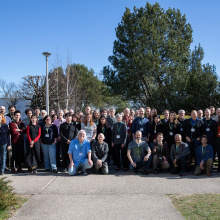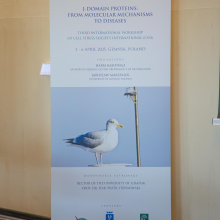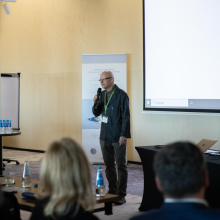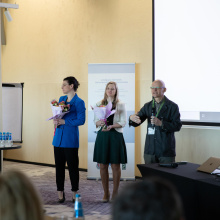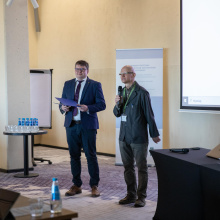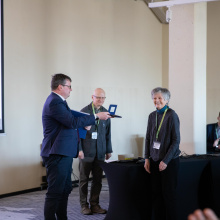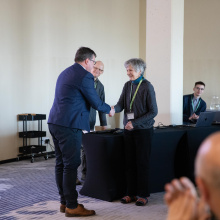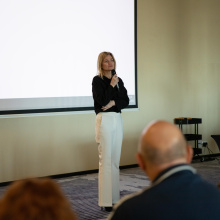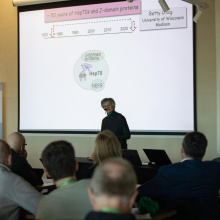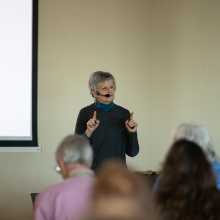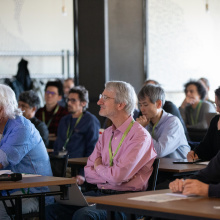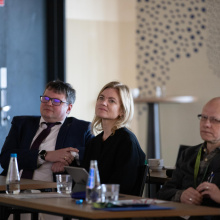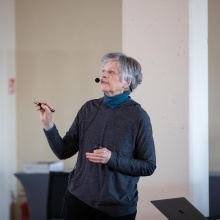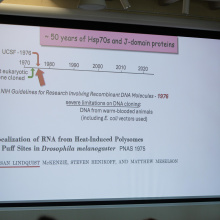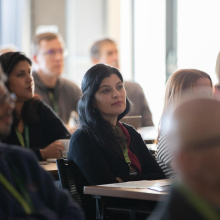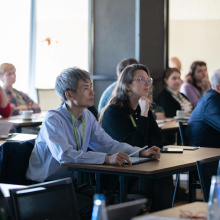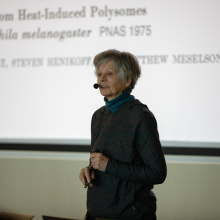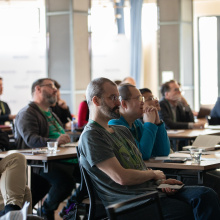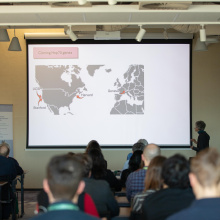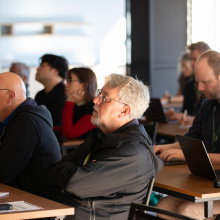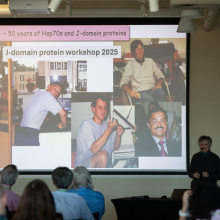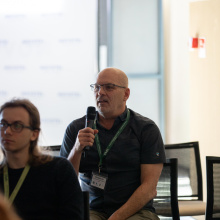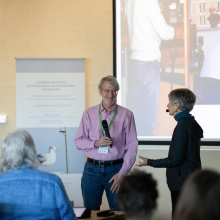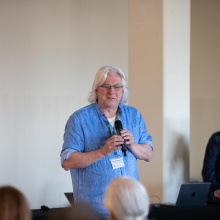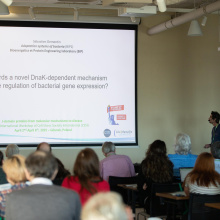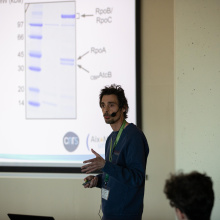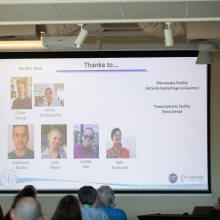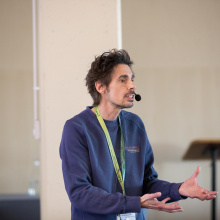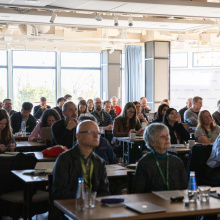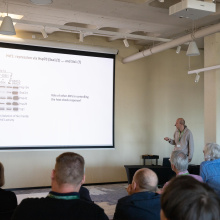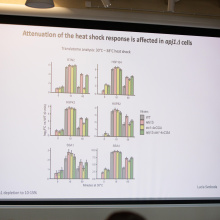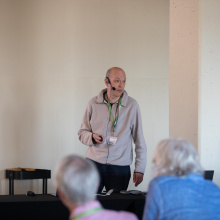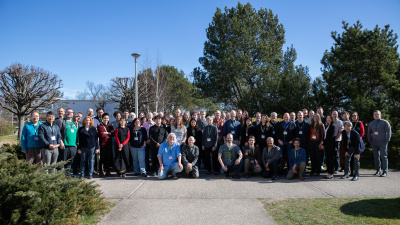
Conference participants, photo by B. Jętczak
An international group of specialists dealing with J-domain proteins (JDP) met in Gdańsk at the invitation of prof. Jarosław Marszałek from the Intercollegiate Faculty of Biotechnology UG and MUG. The conference, organised under the auspices of the Cell Stress Society International, was held in Tricity for the third time. The special guest of this year's edition was prof. Elizabeth ‘Betty’ Craig, one of the pioneers of research on chaperone proteins, which include JDPs. Professor Craig was honoured with the Medal of the University of Gdańsk.
JDPs are the most widespread type of chaperone proteins in living organisms, playing a crucial role in various cellular processes involving other proteins, both under normal physiological conditions and during stress. For example, JDPs control the process of correct protein folding and the degradation of incorrectly folded structures. Under stress conditions, they prevent protein aggregation, and after it ceases, they enable their reactivation. Modern research has shown, among other things, that JDPs play an important role in the mechanisms of neurodegenerative diseases such as Alzheimer's or Parkinson's disease, directly influencing the process of formation of amyloid deposits responsible for these dangerous conditions.
The complexity and diversity of JDPs and their multiple functions in the body mean that, despite decades of intensive research, they are still not fully understood. The conference, which took place from April 3 to 5, 2025, gave a group of international researchers the opportunity to exchange thoughts, insights and the latest results, as well as to directly discuss the problems and questions that have arisen during their research.
During the opening session, prof. Jarosław Marszałek welcomed the guests and expressed his joy that so many specialists were able to attend the conference. He also thanked the people involved in the practical aspects of its organisation and the sponsors. The Dean of the Faculty of Biotechnology at the University of Gdańsk and the Medical University of Gdańsk, dr hab. Ewelina Król, prof. UG, also welcomed the audience and wished them a fruitful conference and a pleasant stay in Gdańsk.
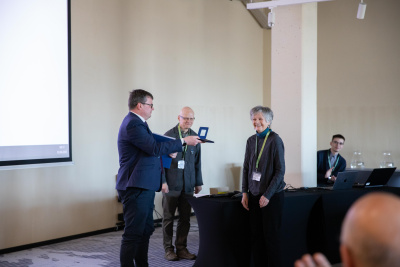
Vice-Rector for Research prof. Wiesław Laskowski, who also took part in the opening of the conference, presented the University of Gdańsk Medal Doctrinae Sapientiae Honestati to prof. Elizabeth Craig from the University of Wisconsin-Madison in recognition of her outstanding research achievements and cooperation with our university: - Today we have the opportunity to express our deep gratitude to our friend, Prof. Elizabeth Craig,' said prof. W. Laskowski. - Thank you for your extraordinary contribution to the development of scientific cooperation at the University of Gdańsk through joint research and inspiring students and young researchers.
In her speech, Professor Craig summarised the nearly 50-year history of her research on JDPs and their co-operating heat shock proteins Hsp70. Among other things, she mentioned the major limitations – not only technical but also legal – associated with the restrictions on cloning DNA molecules that researchers working on chaperone proteins faced in the 1970s. Prof. E. Craig, with her characteristic sense of humour, also talked about how some of her leading research interests emerged:
‘I realised that I liked genetics, but fruit flies were not for me, so I turned to research using microorganisms,’ she said. When explaining how she became interested in the Hsp70 DnaK protein, which is widely researched today, she added: ‘Of all the Hsp70 proteins, DnaK was the easiest to purify and the “nicest”.’
The conference participants presented a wide range of research on JDP proteins: from their structure and organisation, through their occurrence and role in individual cellular compartments, to their interactions with partner chaperone proteins and their involvement in genetically determined metabolic and neurodegenerative diseases. The presentations were specialised and presented the results of the latest, often unpublished, research in this area.
‘When we started exploring the topic of guardian proteins, we knew practically nothing about them,’ said prof. E. Craig. ‘However, the better we get to know them, the more we learn, the more new questions we have.’
More about the conference on the website: Conference Agenda – J-domain proteins from molecular mechanisms to disease 3rd International Workshop of Cell Stress Society International (CSSI) April 2nd-April 6th, 2025 – Gdansk, Poland

